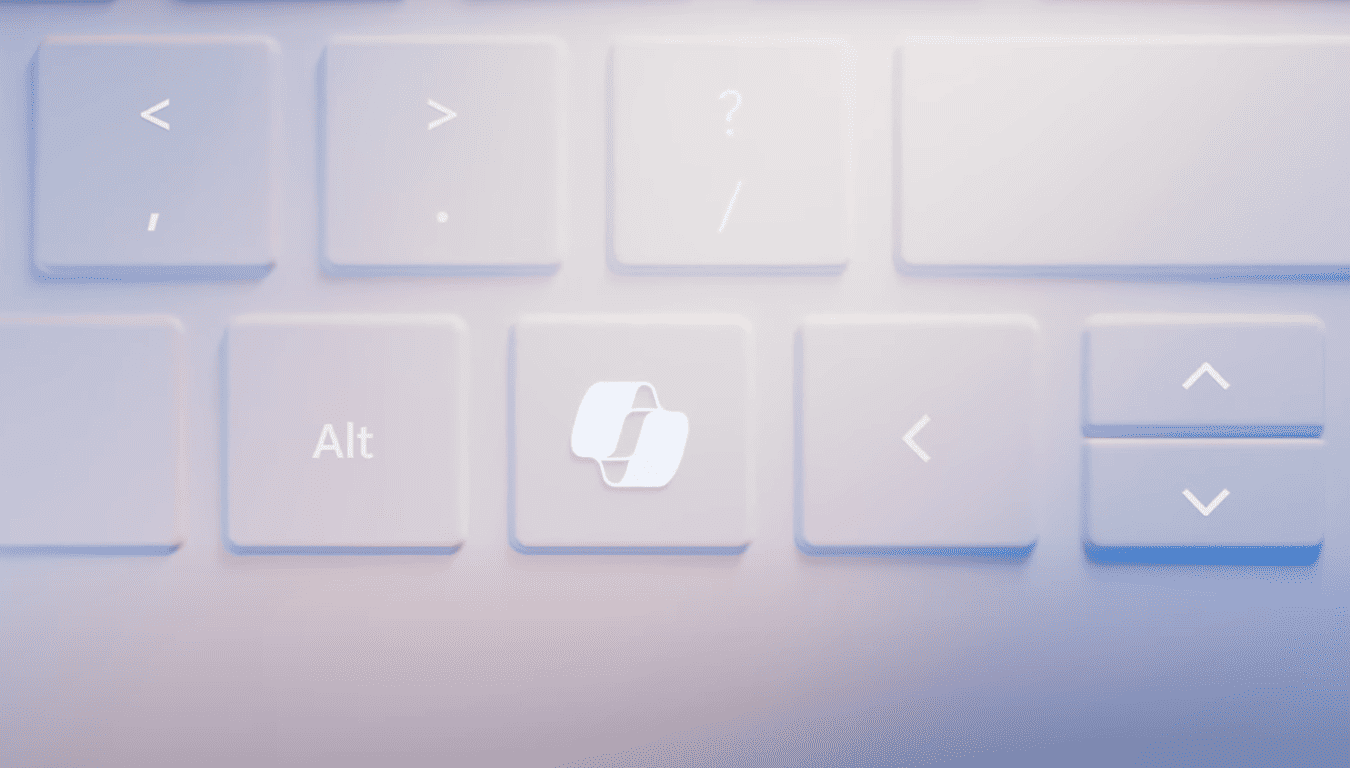From desktop to smartphone, Microsoft is seizing every opportunity to make Copilot and its AI prominent on electronic devices. Now that the company has defined its marketing strategy, AI part is of every possible software and application, and the rebranding to the Copilot name is concluded, Windows hardware, too, cannot escape it. Starting soon, a Copilot key will be integrated into Windows 11 PCs, and, according to Microsoft, the key will become as big an icon as the Windows key. Possibly a thorn in the side of other AI developers who don’t hold the power to force their beloved chatbot on every Windows user.
As recently as late last year, people were simply talking about Bing Chat, an AI tool in the browser that emerged barely a year ago. So there was no way the name was already beloved and important for many, and so Microsoft quickly renamed the whole thing to Copilot. That designation brought more unity to the tech company’s AI suite. The name was already making itself known among developers as the tool in GitHub, and for business users, too, the name was already popping up in Microsoft 365 apps.
Copilot key should become a new Windows icon
With the rebranding, Microsoft stuck all AI assistants in its software and applications under one name and one logo. It is now putting the uniformization to good use to give the technology a permanent place in the keyboard of Windows 11 PCs as well. Upcoming models will feature a key with the Copilot logo designed on it in white.

Source : Microsoft
Microsoft considers the introduction of the Copilot key a big step in the PC world. With the integration into hardware, the company wants to reposition itself as a pioneer of AI. “At Microsoft, we strive to enable people and organizations to adapt and thrive in this new era of AI.” It is even casting itself as the enabler of the era of AI PC with the introduction of the Copilot key. “This will not only simplify but also enhance people’s computing experience, making 2024 the year of the AI PC.”
Computer builders such as Dell, Intel and Lenovo presented that era to us last year as a true revolution in the PC world. Reducing these plans to the integration of a Copilot key on Windows devices is a setback, but perhaps also a necessary reality check about what is already true about “the AI PC” today. Besides, Rome wasn’t built in a day either.
Also read: The AI PC as envisioned by Dell: useful, proactive and enigmatic
Going over to the smartphone
By the way, the desktop is not the only hardware Microsoft plans to flood with Copilot. It was already evident that the Windows builder also wanted to win Android and iOS souls for its AI assistant with its mobile app. That’s pretty much where the 2024 Copilot story began for Microsoft with the launch of the Microsoft Copilot mobile app. This is basically a replacement for the previously known Bing Chat application we noted earlier.
Also read: Microsoft Copilot app is Bing Chat with a new look
Before Microsoft moved on to announcements for Copilot on the desktop today, it stopped by the mobile Edge browser yesterday. That will henceforth be called Microsoft Edge: AI Browser. Although it conspicuously chose not to name its AI helper by name here for once, it is all about increasing the visibility of Copilot in the Web browser. “Microsoft Edge, your AI-powered browser, with built-in Copilot to enhance your browsing experience,” reveals the description of the mobile application.
Just the beginning of the AI announcements of 2024
Whereas a year ago we did not even know about Microsoft’s AI assistant, now there is about no software or application from the tech company that does not have Copilot. Because of Microsoft’s solid ties to OpenAI, making Copilot essentially a tool that uses the GPT models, we expect to see plenty of upgrades and new features to the AI assistant again this year.
Microsoft thinks it has laid the first piece of the puzzle of the AI PC era. We also think the addition of a new fixed key that sets Windows PCs apart after nearly 30 years is certainly worthy of an announcement. However, we remain curious as to what the rest of the puzzle of the AI PC will look like.
Actually just as we are curious whether market authorities will investigate the integration of the Copilot key, which actually sends a large group of Windows users directly to Microsoft’s AI assistant. While there are plenty of alternatives on the market that Windows users don’t have shoved in their faces when opening a desktop.


